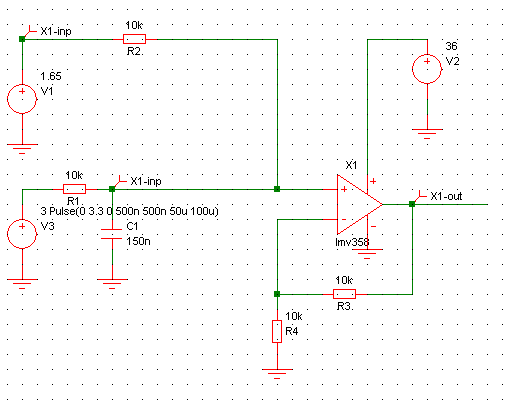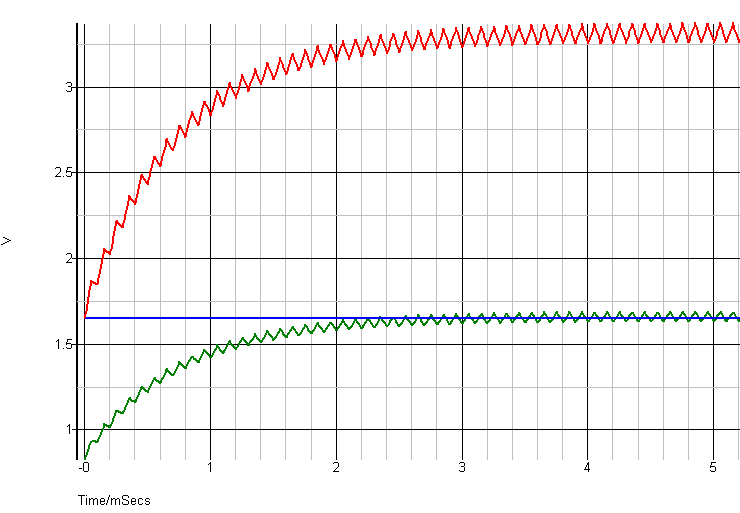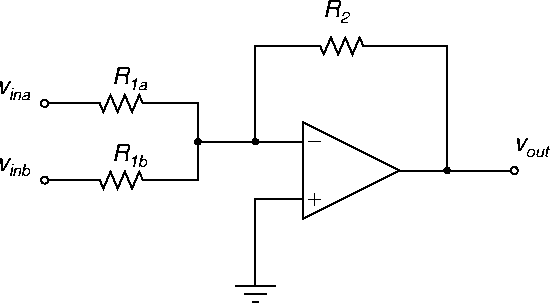I've created the following non-inverting summing amp.
This seems to sum flat DC fine although if I add ripple, the ripple get amplified, surely this should only add the ripple.
Why is the ripple being multiplied?


The ripple is multiplied because the gain of your amplifier is 2. The voltage in the "+" pin of the Opamp sees the green trace. If in that pin you see a DC of 1.65 and a ripple of (just guessing) 50mVpp, then at the output will get a 3.3v + a 100mVpp ripple.
The gain works for both signals, AC ripple, and DC.
This summing amp is not a great example - if you disconnect one of the inputs, the signal amplitude on the non-inverting op-amp pin doubles. Also, the op-amp gain is 2 so therefore your signal will double in size. Try using a better summing amp: -

This uses a virtual earth for the currents to sum from each input and disconnecting one of the inputs does not cause the gain to change.
That actually isn't a summing amplifier. You can only build inverting summers. They work by converting the input voltages to currents through the input resistors as the feedback loop holds the inverting input at GND. If you want to build a noninverting summer, you need to build an inverting summer and then add another inverting amplifier at the output of the summer.